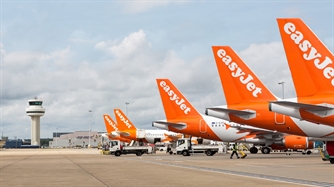easyJet’s CEO Johan Lundgren has openly turned to the U.K. government to provide a tailor-made package to help the airline industry recover from the catastrophic effects of the COVID-19 pandemic on air travel.
The low-cost carrier is set to post its first-ever operating loss and is on target to lose between £815 million and £845 million by year end. Despite having carried nine million passengers between July and September, this was only 38% of its planned pre-pandemic capacity and it still managed to burn through £700 million in that period.
Since the pandemic began, easyJet has raised over $2.4 billion in cash, including a £600 loan from the U.K. Treasury and the Bank of England emergency coronavirus fund. Lundgren has made it clear that the company had taken decisive action to minimize its losses and would continue to regularly review its liquidity position and would “continue to assess further funding opportunities, including sale and lease backs, should the need arise.”
“At the beginning of this year, no one could have imagined the impact the pandemic has had on the industry,” he said. “EasyJet came into this crisis in a very strong position thanks to its strong balance sheet and consistent profitability. This year will be the first time in its history that easyJet has ever made a full-year loss.”
easyJet will be looking to shed some 30% of its workforce and close its bases at Stanstead, Southend and Newcastle airports. The carrier had previously looked for decisive action from the government to help all carriers by lifting air passenger duty for at least a year. ($1.00 = US$1.29 at time of publication.)



























